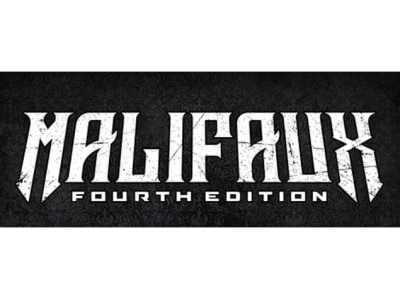Going back to the events that started all this, in the board statement that was released on Monday, August 16th (see 'GAMA Board Statement on Dancey Resignation'), it said that 'Dancey did not hack the list, that he followed a link that appeared in an e-mail on a public list and discovered that the listserver was not password protected. Did he use someone else's e-mail address to access the GAMA board e-mail list?
Stever: To the best of our knowledge, no. That probably should have just said, 'This is what Ryan told us.' It was written as a factual statement, and we only know that because that's what we were told. We've also been told other people did the same thing after they heard what Ryan did. They were able to duplicate his efforts, and I don't think anybody there did anything to hack a password.
MacKinnon: None of us asked Ryan specifically the exact procedure because it wasn't really important to know the exact procedure. Once we found out about the security leak we decided to plug that security leak and that leak issue with Ryan was resolved
Stever: Definitely the first thing we did was tell the GAMA guys, 'Stop people from doing that!'
The argument has been made that Dancey used the information he gathered by monitoring the e-mails to help get his slate of directors elected. What's your response to that?
Stever: That's what I call the 'stupid conspiracy.' Phil and I helped get that slate elected. Phil and I could read everything that was on that board list. So if we were really going to do something unethical, we didn't need Ryan to look at the stuff. We could just look at it and report it to the other members on the slate. Was there any special advantage gotten because of what Ryan did? No, because Phil and I knew this stuff. If we were unethical, Phil and I could just share the stuff. So we didn't need Ryuan to be unethical, and since we are ethical guys and a slate of ethical guys, I call it the 'stupid conspiracy.'
MacKinnon: It was also completely unnecessary for us to have used any of that information to get elected because we got elected on a positive platform based on issues that the GAMA membership had concerns with that had nothing to do with what discussions were occurring on the board of directors' [e-mail] list. Our five point platform, being fair, firm, and friendly, was very transparent and it was very obvious. Anyone without having any information about what was going on the inside could see that was the platform we got elected on. So there was absolutely nothing derived from that board list that could have possibly gotten us elected, because we got elected on a positive campaign.
Stever: It's just a theory with no facts. Somebody point out the special piece of secret information that was received and then used. It's a theory with no basis, and again, it's a stupid conspiracy theory.
The board statement listed three reasons why you initially refused Dancey's resignation, and I want to ask about a couple of those. One was that the board was hoping to retain Dancey. The question is, why would you want to retain somebody who's demonstrated that kind of behavior?
Lacefield: My take on it at the time was that it just wasn't that big of a deal. I don't know that I speak for everybody else, but when it was revealed to us, it was, 'Ok, don't do that again,' and we dealt with it internally and, case closed, we moved on. It just wasn't that big of a crisis. The talents and skills he was bringing to GAMA far outweighed what he did in that manner. Was it illegal, was it not? That's how many angels on the head of a pin. Who's going to argue that? As I was mentioning to Mark earlier today, I violate the law every day -- I speed. Should I resign because I break the law on a daily basis, because I have a leadfoot? It's splitting hairs at that point, and personally, while I was surprised by it, and shocked by it, it just didn't come off as that much of a problem. We dealt with it and we moved on.
Dalrymple: It bothered me. The fact that Ryan came out immediately and said what he did affected my impression of it. Although I wasn't sure what the legality would be, I was thinking that he wouldn't be admitting to it openly if he thought it was an illegal act. Certainly it was bothersome to me from an ethical standpoint.
I also had a conversation about this with our managing director shortly after the meeting. We did discuss this over e-mail, and said retaining Ryan didn't necessarily mean retaining him as treasurer. There were other possibilities that were proposed where his skills could be accessed by the board of directors at a board level, but where there's somebody who had not admitted to committing at least an unethical act in the treasurer position, because that board position requires an honest person with good integrity. So when the board makes a statement saying, 'Retaining him at a board level,' the statement did not say retaining him as treasurer.
And of course the possibility was always kept in place that we weren't saying absolutely that Ryan wasn't going to go. The board had agreed when they got elected that they wanted to be transparent. They had indicated before then that they wanted to take the issues before the membership to see how they wanted things to be conducted. Once we figured out what we were going to do, Ryan was going to admit to what he did, apologize for what he did, the previous board would be informed, the membership would be informed, and then we would determine what we were going to do after that. But certainly I was bothered by it.
One of the other rationales for keeping him was that it wasn't clear that his actions were illegal. That implies that the possibility existed that they were illegal. If there was a question, why err on the side of retaining him?
Stever: Various members of the board talked with, by my count, seven lawyers. 5.75 lawyers thought it was legal, 1.25 lawyers thought it was illegal. I think there are very few things in life that 1.25 out of 7 lawyers don't think are problems. Clearly the biggest mistake we made was, we should have just understood it was wrong and accepted Ryan's resignation immediately. But that should have been based on whether it was ethical or unethical, not based on whether it was legal or illegal. The first lawyer said, 'It's illegal, but nobody will care.'
The next five lawyers all said, 'No, it's not illegal.' And there was big court case about this very issue in the First Circuit District Court where the court ruled that what he did was perfectly legal, and now a bunch of people are scrambling to rewrite the rules in the State of California. So was there a question about its legality? I actually don't think that was as important as the mistake we made in not considering how ethical or unethical it was.
MacKinnon: A slight disagreement I have with Martin. It's not a big one; it is slight. I think that under the circumstances we did the exact right thing by not accepting his resignation, because as far as I was concerned it wasn't our place to accept it. It was our place to go to the full voting members and let them decide, because they voted him in just a few weeks earlier. And for us to remove someone that they duly elected, I think is presumptuous on our behalf. We had the power to do so, but I don't think it was the right thing for us to do. I think the right thing was to keep him with the sole expression of going to the full voting members and letting them decide whether to keep him or not. I think that was what we should have done. So I don't think we made any mistakes by retaining him, or by refusing his resignation. I think it was exactly the right thing to do. We had to go to the full voting members and let them have their voice, because we didn't want to overturn their decision that they had made so recently.
Dalrymple: As to the reason why a number of lawyers were contacted, the GAMA counsel that we had been using has been the GAMA lawyer for a year. And he was doing the work for the previous board, and some of that work involved discussions going up to the election. So I felt that it was important, and I stressed to the president, that we contact a lawyer that nobody had any previous associations with, whether they were the previous board, or whether they were members of the current board. And as a result, people went out and spoke to a number of different attorneys and a number of different sources, and that's why we came back with a number of different opinions.
This has been Part 1, for the remaining sections of this four-part interview, see:
GAMA Board of Directors Interview--Part 2
GAMA Board of Directors Interview--Part 3







